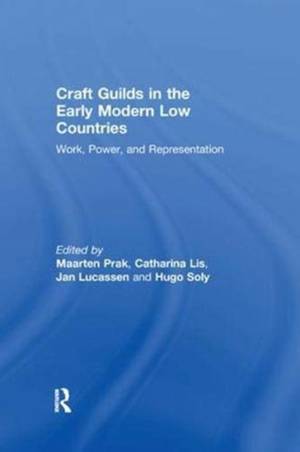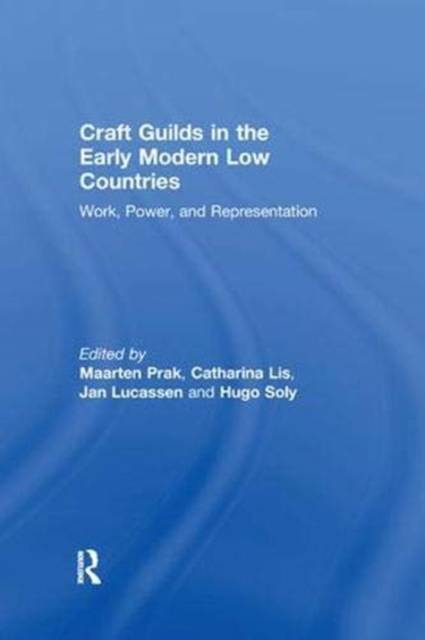
Door een staking bij bpost kan je online bestelling op dit moment iets langer onderweg zijn dan voorzien. Dringend iets nodig? Onze winkels ontvangen jou met open armen!
- Afhalen na 1 uur in een winkel met voorraad
- Gratis thuislevering in België vanaf € 30
- Ruim aanbod met 7 miljoen producten
Door een staking bij bpost kan je online bestelling op dit moment iets langer onderweg zijn dan voorzien. Dringend iets nodig? Onze winkels ontvangen jou met open armen!
- Afhalen na 1 uur in een winkel met voorraad
- Gratis thuislevering in België vanaf € 30
- Ruim aanbod met 7 miljoen producten
Zoeken
Craft Guilds in the Early Modern Low Countries
Work, Power, and Representation
Catharina Lis, Hugo Soly
Paperback | Engels
€ 97,95
+ 195 punten
Uitvoering
Omschrijving
In the half millennium of their existence, guilds in the Low Countries played a highly significant role in shaping the societies of which they were a part. One key aspect that has been identified in recent historical research to explain the survival of the guilds for such a long time is the guilds' continued adaptability to changing circumstances. This idea of flexibility is the point of departure for the essays in this volume, which sheds new light on the corporate system and identifies its various features and regional variances. The contributors explore the interrelations between economic organisations and political power in late medieval and early modern towns, and address issues of gender, religion and social welfare in the context of the guilds. This cohesive and focussed volume will provide a stimulus for renewed interest and further research in this area. It will appeal to scholars and students with an interest in early modern economic, social and cultural history in particular, but will also be valuable to those researching into political, religious and gender history.
Specificaties
Betrokkenen
- Auteur(s):
- Uitgeverij:
Inhoud
- Aantal bladzijden:
- 282
- Taal:
- Engels
Eigenschappen
- Productcode (EAN):
- 9781138379114
- Verschijningsdatum:
- 6/06/2019
- Uitvoering:
- Paperback
- Formaat:
- Trade paperback (VS)
- Afmetingen:
- 155 mm x 231 mm
- Gewicht:
- 408 g

Alleen bij Standaard Boekhandel
+ 195 punten op je klantenkaart van Standaard Boekhandel
Beoordelingen
We publiceren alleen reviews die voldoen aan de voorwaarden voor reviews. Bekijk onze voorwaarden voor reviews.











